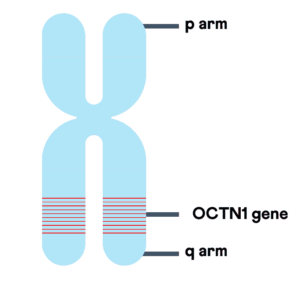Reports
Health
Wellness
Food intolerance or food sensitivity describes the difficulty in digesting certain foods and can lead to unpleasant reactions like intestinal gas, abdominal pain, or diarrhea.
The symptoms of food intolerance appear only after a few hours of consuming the food.
It can be difficult to identify food intolerance as the symptoms are often mistaken for other conditions.
Some common symptoms of food intolerance include:
Food intolerances aren’t life-threatening. However, they can be very problematic for those affected.
Some causes of food intolerance are the absence of certain digestive enzymes (proteins that help with the digestion of food), some chemicals/additives in the food, and toxins.
Common food intolerances seen in people are:
While food intolerance is a problem with digesting food, food allergies are due to our immune system reacting to the food item itself.
Food allergy occurs when the immune system sees a specific component in the consumed food as an “enemy” to the body and sends out a response that results in allergic reactions.
The symptoms of food allergy occur soon after eating the food and are much more severe than those seen in the case of food intolerances.
In rare cases, food allergies can result in a reaction called ‘anaphylaxis’ where your blood pressure drops and your airway narrows down - this can potentially be life-threatening.
Mushrooms are loved worldwide as they contain flavor enhancers and are a gourmet’s delight. This makes them the most popular choice for pizza topping, after pepperoni!
Some nutritional facts about mushrooms
Mushrooms are a “powerhouse of nutrition” and not a white food to be avoided.
Some research studies show that they can be used to lower the risk of diseases such as cancer, Alzheimer’s, and Parkinson’s.
Also known as SLC22A4, this gene is located on the long arm or the q arm of chromosome 5.

OCTN1 produces a protein that is responsible for the transport of positively charged compounds - in this case, ergothioneine - a substance present at high levels in mushrooms.
A study established an association between the OCTN1 gene and mushroom intolerance risk.
This interaction was observed among patients with Crohn’s disease.
Crohn’s falls under a group of diseases (called the inflammatory bowel diseases) that affect the digestive tract - the mouth, esophagus, stomach, small intestine, and large intestine. Crohn’s results in the inflammation or swelling of the digestive tract, which can lead to side effects like stomach pain, diarrhea, and weight loss.
rs1050152 of the OCTN1 gene has an association with mushroom intolerance. In a study conducted in the New Zealand population, among the people who were mushroom intolerant, it was found that the T allele of rs1050152 was present in a higher number (in people with and without Crohn’s disease). This suggests that having a T allele in rs1050152 can increase your risk for mushroom intolerance.
rs1050152 was previously found to be associated with a risk for Crohn’s disease.
The shiitake is an edible mushroom native to East Asia. Shiitake mushroom intolerance is one of the most common forms of mushroom intolerance.
The American chemical society in 2005 stated that mushroom contained the highest concentrations of ergothioneine, higher than either of the two dietary sources, wheat germ and chicken liver - which were previously believed to contain the most.
When compared with the other types of mushrooms cultivated in the US, the shiitake variety contained the highest amount of L-ergothioneine, which explains why shiitake mushroom intolerance is more common.
There have been reported instances of people developing sudden mushroom intolerance, without any prior incidents.
This could either be due to the type of mushroom consumed or a mushroom allergy.
The best way to find out is to take up a food intolerance test.
People at high risk for mushroom allergy include:
The best and the only way to avoid mushroom intolerance is to remove mushrooms from the diet completely.
The available study on the reason behind mushroom intolerance identified ergothioneine as the ‘component’ that leads to intolerance. So, it is also important to be wary of foods containing ergothioneine. Foods high in ergothioneine include:
Updated 13th March, 2021
Nutrigenomics and Nutrigenetics describe the science of how genes interact with your nutrition. Though we inherently recognize by observing that two people eating the same food can have significantly different outcomes. For example, not all individuals who consume high carbs become fat, and not all obese people consume high carbs. One can find many such anomalies that seem to contradict conventional wisdom, suggesting that something more intrinsic is involved in these outcomes than just what we eat and what we do.
Here are 15 incredible nutrigenomics facts, which are sure to pique your interest and make you want to understand your genetics:
Nutrigenomics Fact 1: Nearly 70% of people have a genetic variant in the ADORA2A gene that is associated with poor sleep on increased consumption of caffeine.
Nutrigenetics Fact 2: About 65% of people carry a variant of the MTHFD1 gene that is associated with an increased risk of fatty liver on low choline intake
Nutrigenomics Fact 3: 60% of people have a variant of the AGT gene which is shown to be associated with an increased risk for hypertension on high salt intake
Nutrigenetics Fact 4: Nearly 15% of people have a variant of the APOA2 gene which is shown to be associated with an increased risk for obesity on high saturated fat intake
Nutrigenomics Fact 5: Nearly 97.5% of the African American population carries a variant of the FADS1 gene, which is associated with an increased need for plant sources of PUFA. While only 50.6% of Europeans and 0% of Central Americans carry this variant.
Nutrigenetics Fact 6: Nearly 10% of people have a genetic variant in the MTHFR gene, which is associated with an increased risk of birth defects when folate levels are low.
Nutrigenomics Fact 7: About 5% of the global population carries a genetic variant in the G6PD gene that is associated with glucose-6-phosphate dehydrogenase deficiency, a condition that is mostly triggered by the consumption of fava beans.
Nutrigenetics Fact 8: About 0.2% of the global population carries a genetic variant in the HFE gene and is predisposed to Hemochromatosis when its iron intake is high.
Nutrigenomics Fact 9: About 0.2% of the global population carries a genetic variant of the SI gene, which is associated with sucrase-isomaltase deficiency when their sucrose intake is high.
Nutrigenetics Fact 10: About 0.005% of the global population carries a genetic variant in the ALDOB gene, which is associated with hereditary fructose intolerance when their fructose intake is high. About 1 in 50 adults is heterozygous for a non-functional ALDOB variant and are predisposed to hereditary fructose intolerance when their fructose intake is high.
Nutrigenomics Fact 11: About 58% of Japanese men have a genetic variant in the ALDH gene, which is associated with enhanced alcohol dehydrogenase activity and enables them to have more drinks than non-carriers.
Nutrigenetics Fact 12: About 65% of the global population carries a variant in the CYP1A2 gene, which is associated with fast metabolism of caffeine and lowered the risk for heart attack by almost 52% compared to slow metabolizers.
Nutrigenomics Fact 13: About 23% of the global population carries a variant in the AMY1 gene, which is associated with low copy numbers of the gene and reduced ability to digest starch.
[or]
70% of people from agricultural populations have an AMY1 copy number variant which is shown to be associated with better starch digestion and lower risk of obesity when compared to 37% of non-agricultural populations
Nutrigenetics Fact 14: According to a nation-wide study conducted by Metropolis Healthcare on Vitamin D, Vitamin B12, and Vitamin B9 (Folic Acid), 75% of the population has shown alarming levels of deficiency.
Nutrigenomics Fact 15: About 50% of the global population have variants in the TAS2R38 gene, which is associated with increased bitter taste perception and decreased consumption of vegetables.
Also Read: Why most things you know about nutrition and weight loss are plain wrong!
Is Dr. Rhonda Patrick Diet For You? Analyze Your DNA Raw Data To Find Out Your Nutritional Needs!
